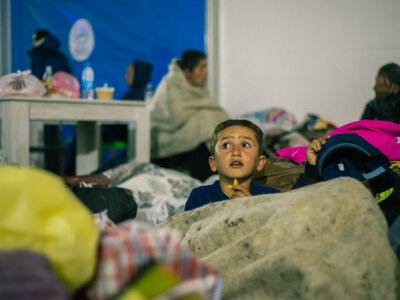Armenia
- 20%
- of people are food insecure
- 24%
- of people live in poverty
- 3 million
- population
Armenia has faced numerous challenges in recent years, including the COVID-19 pandemic and clashes along the Armenian-Azerbaijani border and inside Armenia. Hostilities in Nagorno-Karabakh Region resulted in over 115,000 people refugees fleeing into Armenia in one week in September 2023.
The influx led the World Food Programme (WFP) to provide assistance, including shelter, food, and psychosocial support, to refugees and vulnerable communities.
WFP's efforts in Armenia go beyond immediate relief, focusing on resilient solutions to enhance food security and support local farmers, empower communities, and build government capacities. We prioritize food security with a resilient ’farm to fork’ approach.
One initiative is the Food Card, which provides cash for food at selected stores for vulnerable people. This activity will be handed over to the Government at a future point.
The school meals programme in Armenia was nationalized in 2022. WFP will support the expansion of school meals and continue strengthening links to rural development. WFP will support capacity-strengthening efforts to launch a school-meal programme in the capital, Yerevan.
What the World Food Programme is doing in Armenia
-
Food systems
-
WFP Armenia increases the availability of, and access to, nutritious, locally produced food. This involves a ’farm to fork’ approach, which emphasizes local production, livelihood investment, water-irrigation improvements, and initiatives in climate-smart agriculture and solar energy. In partnership with the Centre of Humanitarian Demining, WFP facilitates land clearance for agricultural use.
-
Social protection
-
Social behaviour change
-
Climate change
-
Nationalization agenda
Armenia news releases
Go to pagePartners and donors
Find out more about the state of food security in Armenia
Visit the food security analysis pageOperations in Armenia
Contacts
Office
14 Petros Adamyan St, Yerevan 0010, Armenia
Yerevan
Armenia






